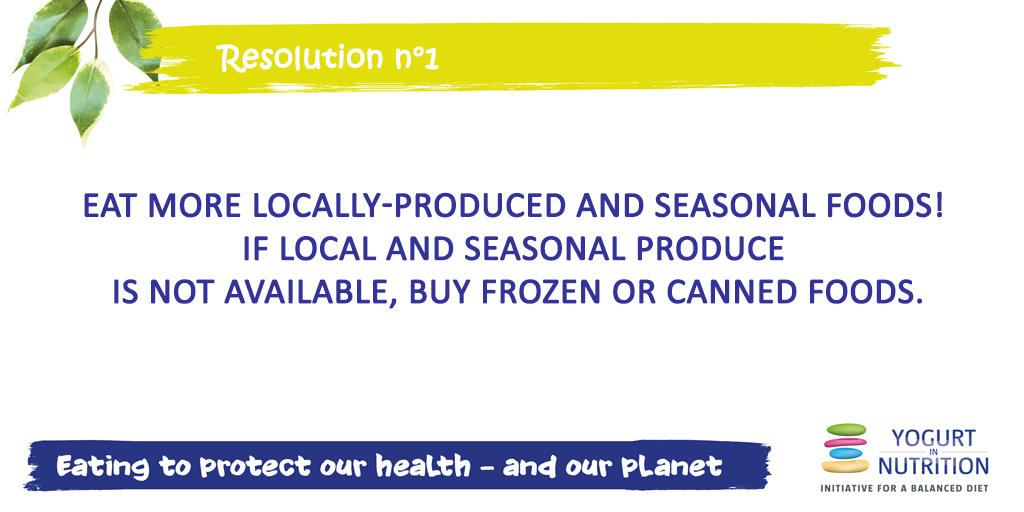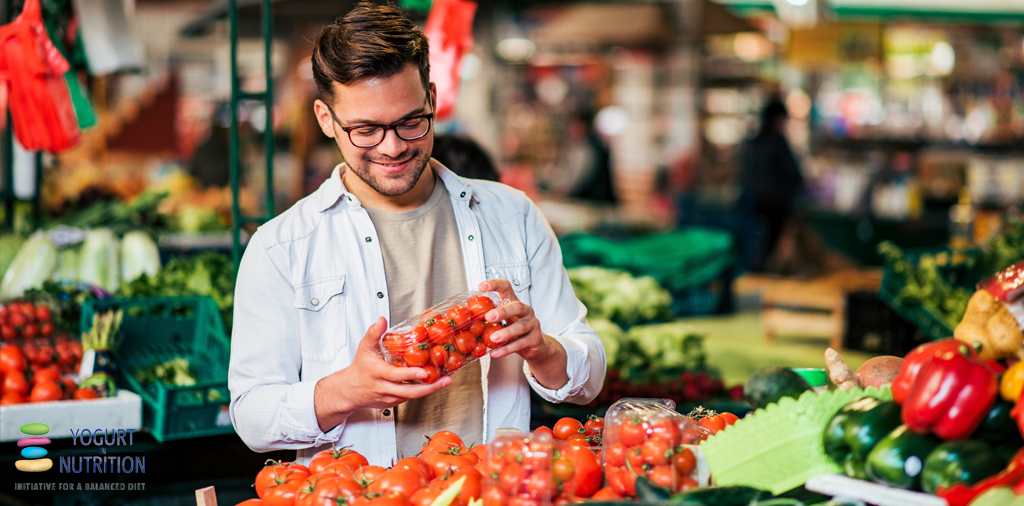At the Yogurt In Nutrition Initiative, we look forward to a more sustainable 2020. We bring you 12 food resolutions to protect our health and our planet!
This month’s resolution is: Eat more locally-produced and seasonal foods! Buy frozen or canned foods if local and seasonal are not available.

What about locally-produced and seasonal foods?
The journey our food takes to reach our dinner plate uses energy for agriculture, transport, processing, packaging, distribution, retail and cooking. It may be sometimes easy to forget that certain fruits and vegetables are transported across the globe by airplanes. They are associated with higher greenhouse gasses than locally-produced foods, because of the energy used through their transport.
In order to be more sustainable, the choices we make in terms of agricultural practices (local, seasonal, organic, fair trade etc.) can make an additional big difference! A growing tide of people across the world is challenging the current food systems and diets and embarking on new paths that embrace a sustainable approach. Indeed, they’re adopting a more environmentally-friendly diet, eating more plants and less meat, buying seasonal or local products or producing their own food.
Some studies have modelled sustainable diets according to local or regional food production. Most studies so far agree on the need to shift towards more plant-based diets, but they differ on what the diets should be made up of, how much meat or dairy they should contain, and what kind of meat should be preferred, as these may depend of local issues.
However, when choosing your fruit, nuts and vegetables, don’t forget that the more exotic options may have to be imported, generating greenhouse gases through transport and distribution: a banana imported to Europe from South America has a bigger carbon footprint than a locally-grown apple, for example. So, switching to more plant-based foods doesn’t automatically reduce your carbon footprint, and it can make it even bigger.
Choosing fruit and vegetables that are in season is also important for cutting down on greenhouse gases arising through transport and distribution. So, if you live in northern Europe, that means no tomatoes in winter!
And it is not just about greenhouse gases. Another hidden danger that can trip you up on your path to sustainability is unexpected use of natural resources. For example, nuts are widely recommended by EAT-Lancet and other dietary modelling studies, but some nuts can have their down-side too. It’s estimated that for an almond tree to grow one almond, it needs to guzzle one gallon of water!
For more information, check out our Q&A about sustainable diets:
- Eating to protect our health and our planet: What is a sustainable diet and why do we need it?
- Eating to protect our health and our planet: What would a more sustainable diet mean for you?



